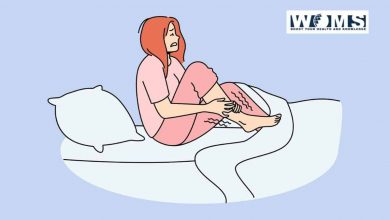Lifting Your Spirits: 4 Ways to Feel Better in Difficult Times

In the last couple of years, the pandemic forced shutdowns of entertainment, larger social gatherings, dining, and other fun activities. In addition, life comes with other stressful situations, and sometimes bad experiences are thrown at us from nowhere. Consequently, the feelings of worry, sadness, fear, and negative emotions become a normal response and people find it difficult to cheer themselves up in their usual ways.
When a person is in the thick of life’s stressors, they want to experience a sense of relief and happiness right away. However, they must take a proactive stance and work on feeling better and shaking off the lingering negative feelings.
In this post, we’ll walk you through some tips on how to lift your spirits during difficult times and shift your bad mood to a happier place.
Practice Self-Care
Practicing self-care is essential as it leads to better physical, mental, and emotional health and well-being. It starts with tending to your own needs and helps you produce positive feelings, boosts your motivation levels, and leaves you with increased energy to get through the day.
This isn’t always easy so make sure to create a self-care plan to take good care of your body, mind, and soul. Learning how to eat healthily, exercise regularly, and take a time-out when you feel exhausted are the touchstones of self-care and can help you increase life satisfaction.
If, for instance, you had a medical intervention or surgery and you’re prevented from doing your daily self-care routines, make sure to find some alternative ways to find comfort at home. You can surround yourself with comfortable pillows and cushions that will help you get a good night’s sleep, or even get a heavy-duty bariatric bed as it provides a well-needed level of mobility for post-surgery patients, especially if you’re overweight and need a physical therapist to be on the bed with you.
Since certain recoveries may take a longer period, prepare yourself with a good selection of movies, or stock up on magazines and books as they will keep your self-care routine effective.
Turn to Your Faith
Whether you’re struggling with stress, negative emotions, or fear, or you’re just having one of those days where nothing seems to go right, you can rely on your faith to help you.
If you’re a believer, you already know that hope not only relies on the people and circumstances around you but also on a higher power that’s above it all. Research shows that prayer can be one of the most powerful resources we have but tend to forget.
If you want to broaden your beliefs and principles, but don’t have any idea of how to practice spirituality, you can always turn to the readings of inspirational Catholic saints. Do a Catholic online saint of the day search to learn about their good deeds and how they practiced faith. This can help you find hope in times of pain and difficulties and their quotes can serve as a mantra to keep you going, even when times are rough.
Create Good Sleeping Habits
During sleep, the brain and body have time to recover and process impressions. Getting enough sleep increases your resilience to both physical and mental stress and helps you feel better.
Different people have different sleep needs. If you feel fine and function well during the day, you probably get enough sleep. Adolescents usually need about 8-10 hours of sleep per night and adults about 7-9 hours.
Try to have regular bedtimes where you get up and go to bed at about the same times each day. Being active and moving during the day, especially in the morning, helps the body maintain a steady circadian rhythm. Also, you should exercise and get as much sunshine as you can.
Create a routine for unwinding before bedtime and avoid alcohol, nicotine, and caffeine as these substances impair sleep. If the sleep difficulties persist for a long period so that the fatigue bothers you in everyday life, you can seek help.
Practice Gratitude
Practicing gratitude is good for your overall health. Feelings of gratitude or appreciation provide many positive benefits. Studies show that people who feel more grateful usually experience lower levels of depression, better sleep, fewer heart diseases, better physical and mental well-being, and they even tend to be more likable by other people.
If you’re interested in exploring the benefits of feeling grateful, the following tips can help you along the way.




